How to Sleep Better (65+ Tips)
Want to increase your memory retention, raise cognition, improve athletic capabilities, boost your immune system, be more creative, stave off depression, increase focus, live longer, drop fat, improve eating habits, and be more productive?
You don’t need to stack nootropics, take prescription drugs, micro-dose LSD, or any other trendy “hack” that will only give you short term benefits (at huge long term costs).
All you have to do is sleep more!
That’s right. The best performance enhancer you can give yourself, better than any pill, drug, drink, or anything is sleep.
I’ve had trouble sleeping my entire life, only recently deep diving into everything there is to know about sleep and finally getting it under control.
In this guide I’ve compiled a combination of 67 techniques you can utilize, things you should avoid, products you can use, and important things you should know about sleep you can pick and choose from to increase the ease and quality of your sleep.
Sleep advice over the web is too shallow, low effort, not actionable enough, or is flat out wrong. This exhaustive guide was made to be your one-stop-shop that covers everything possible you can do to get a better night’s sleep. While you don’t need to do everything here, apply the points that sound good to you.
Let’s get right into it.
(Quick Note: If a Personal Recommendation is “No” then it just means I haven’t had enough experience with the product or technique to give it an endorsement, you can still give it a try)
- Part 1: Techniques, tips, and habits that will help you sleep better
- Part 2: Products and software that will help you sleep better
- Part 3: Things to AVOID that will help you sleep better
- Part 4: Knowledge, learn about and better understand sleep
Part 1: Techniques, Tips, and Habits to Sleep Better
This section is full of actionable techniques you can start doing right now to get better sleep at night. Some will work much better for you than others, so mix and match to find what works best for you.
Sleep 8 Hours MINIMUM (8.5-10 Hours Recommended)
Rating: ⋆⋆⋆⋆⋆ | Difficulty: 4/5 | Personal Recommendation: Yes
Positives: Getting the right amount of sleep can change everything for you
Negatives: You have to sacrifice time, which some people don’t want to do
A big thing about the standard 8 hour recommendation nightly for sleep is that it’s an estimation.
The standard 8 hours of recommended nightly sleep is a minimum. There’s a very big chance you need more than 8 hours, and a very slim chance (<1%) you need less than 8 hours to function properly.
Another big thing about the standard 8 hours is that people confuse sleep opportunity with actual sleep time.
Sleep time is the actual amount of time you are asleep. Sleep opportunity is the amount of time you give yourself to dedicate toward sleeping. When you go to bed, you likely don’t instantly fall asleep and wake up exactly 8 hours later, so planning to go to bed at 10PM and wake up at 6AM is not the best strategy. Your head likely won’t hit the pillow at 10PM, and if it does, you won’t fall asleep instantly.
To fix this potential problem, give yourself as much at 10 hours each day to sleep. That way if anything unexpected happens you’ll have a bit of buffer time to give yourself the minimum 8 hours recommended.
Your best bet is to sleep as much as possible, over 8 hours per night of ACTUAL sleep. Do this and your life will change.
To drive this point home, here’s a tweet from David Heinemeier Hansson, a highly skilled programmer, creator of Ruby on Rails, founder of Basecamp, and best selling author on getting enough sleep at night:
I’ve always slept 8.5-10 hours. My most cherished luxury is not having to wake to an alarm clock 97% of the time. When your common state is getting enough sleep, blowing just one night is an obvious setback. I try never to program on less than a full night’s sleep.
— DHH (@dhh) April 29, 2018
Wake Up At the Same Time Every Day
Rating: ⋆⋆⋆⋆⋆ | Difficulty: 5/5 | Personal Recommendation: Yes
Positives: Nothing keeps your internal cycle steady + regulates adenosine levels better than this.
Negatives: Hard to wake up at the same time if you went to bed late
Out of this ENTIRE guide, this is probably the #1 tip that will give you the best results long-term.
If make sure to consistently wake up at the same time each day, then you will likely be able to fall asleep around the same time. When you both sleep and wake at similar times, your body’s circadian rhythm is rock solid, and when your cycle says “it’s your usual time to sleep” you’ll have acquired enough adenosine throughout the day to help you sleep.
If you fall asleep late one day, waking up at your normal time will be the best way to do the least damage to your circadian rhythm.
If you can take anything away from this guide, it’s that waking up the same time every day will help your overall sleep efforts more than anything else, and you should use everything in this guide to keep up with this tip.
Get 20-30 Minutes of Sunlight Each Day
Effectiveness: 3/5 | Difficulty: 2/5 | Personal Recommendation: Yes
Positives: Strengthens your internal clock so you can sleep better later
Negatives: You have to go outside!
Getting some sunlight every day is a great signal to send your body that says “Yep, the sun is definitely out and I should definitely be awake right now”.
That event will make a signal that makes it easier for your body to transition into “night” mode later, and eventually to “ready to sleep” mode. Plus, a little sunlight to get some Vitamin D is also great.
Wake Up Earlier
Rating: ⋆⋆⋆ | Difficulty: 4/5 | Personal Recommendation: Yes
Positives: Getting your circadian rhythm closer to actual sunrise helps with overall sleep
Negatives: It’s hard to wake up early
This simple tip will align your body closer to the actual sunrise and sunset, which will sync up your circadian rhythm to the actual sunrise and sunset. Simply waking up early isn’t enough, however, you still need to make sure you are avoiding blue wavelength light in the evenings and nights.
Stop Setting 5 Alarms
Rating: ⋆⋆⋆ | Difficulty: 1/5 | Personal Recommendation: Yes
Positives: You won’t get woken up unnecessarily 5 times each morning
Negatives: You can’t joke to your friend about how you have to set 5 alarms
This has to be addressed because of how prevalent it is (and that I was guilty of doing this myself).
Setting five different alarms in your phone to wake up is a bad idea. You build the bad habit of turning off the first 1-3 alarms in a near unconscious state, and when you finally are forced awake the fifth time by your last alarm, you’re exhausted and more tired than you have to be for no reason at all.

Do your poor brain a favor and stop traumatizing it five times a day, and that’s not even mentioning hitting the snooze button.
Stop Relying on the Snooze Button
Rating: ⋆⋆⋆⋆ | Difficulty: 4/5 | Personal Recommendation: Yes
Positives: Stop disrupting delicate sleep cycles with constant alarms
Negatives: People can’t imagine life without the snooze button
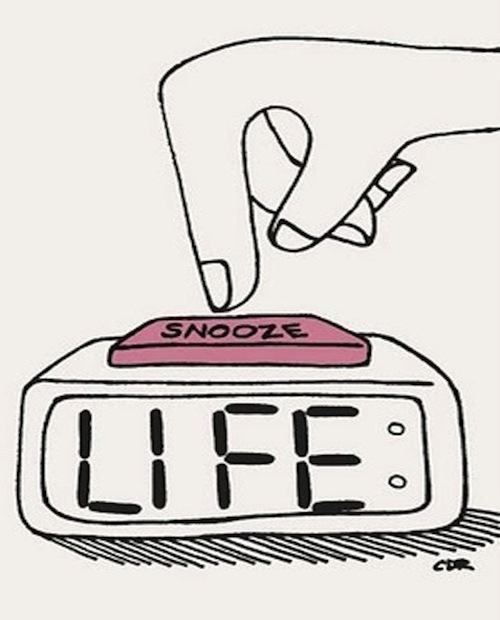
Not waking naturally and being shocked awake by an alarm clock is disruptive to your sleep cycles and is a very unnatural way of waking up.
The only thing worse than being shocked out of a delicate sleep cycle in the morning would be being shocked out of your sleep cycle multiple times in the same morning, and that’s exactly what the snooze button accomplishes.
Snoozing is pointless, anyway. It’s evidence that you have poor sleeping habits in general, making the snooze button a bad solution to a problem that only makes things worse in the long run.
To greatly improve the quality of your sleep, eliminate snoozing from your life completely.
Ditch the Alarm Clock Permanently
Rating: ⋆⋆⋆⋆⋆ | Difficulty: 4/5 | Personal Recommendation: Yes
Positives: Waking naturally prevents REM cycle interruption, increasing sleep quality
Negatives: Hard to do if you work early (but certainly possible)
Alarm clocks should be a last resort tool that stops you from getting fired, not a way to wake you up every single day.
The last REM cycle of your sleep may be the most important, and having that interrupted consistently will wreak havoc on the overall quality of your sleep (and by extension the quality of the time you’re awake).
The best fix is the most simple:
Go to bed early enough where you wake up naturally without the need for an alarm clock.
Find out what works for you, but make sure you give yourself more than 8 hours of sleep opportunity and wake up naturally.
Put Your Clock Out of View in Your Room
Rating: ⋆⋆⋆⋆ | Difficulty: 1/5 | Personal Recommendation: Yes
Positives: Moving your clock out of view will stop you from habitually checking it
Negatives: You might not know what time it is
A small distraction can be all it takes to stop you from falling asleep. Having your clock immediately in view from your bed (this includes the clock on your phone), leaves the potential for you to constantly check the time, worrying about any pointless things like how long it’s taking you to fall asleep rather than relaxing and actually falling asleep.
Like the above suggestion, ditch the alarm clock and go even further by ditching the clock entirely when attempting to sleep.
Ban Your Phone from Your Room at Night
Rating: ⋆⋆⋆⋆⋆ | Difficulty: 4/5 | Personal Recommendation: Yes
Positives: Eliminates all habits of checking your phone that disrupt sleep
Negatives: You can’t go a moment without your phone!
Phones are great at distracting you. They shoot strong blue wavelength light in your eyes that limits your melatonin production. They keep you in a state of mild paranoia, having you check every notification you receive when should be trying to sleep. We even put our alarm clocks in our phones and set 5 separate alarms to add layers to our phone based anxiety and paranoia.
Basically, phones today are direct opposition to getting a good night’s rest.
I strongly recommend you ban your phone from your room at night. Charge it in another room and retrieve it in the morning when you wake up. If you can’t do that, charge it as far away from you and out of sight, with all notifications (including vibrations) completely turned off.
Log When You Wake Up
Rating: ⋆⋆⋆ | Difficulty: 2/5 | Personal Recommendation: Yes
Positives: Logging when you wake up will promote consistency in your sleep
Negatives: You might forget to log, or let the habit slip.
Unsure of how well your attempts at waking up the same time every day are going? Log the time you wake up every day and you’ll be able to easily gauge how consistently you’re waking up when you want, and know when it’s time to make adjustments due to missing your goal too many times.
You can log your wake-up time with our Daily Planner that has a dedicated section for logging when you wake up, or you can use our Habit Tracker to check off the days you successfully hit your goal wake up time. Both are great tools to add some consistency to your sleep schedule.
You can download all planner templates right now by filling out the form below:
[do_widget id=enews-ext-4]
Make Your Days as Similar as Possible
Rating: ⋆⋆⋆⋆ | Difficulty: 4/5 | Personal Recommendation: Yes
Positives: Routine in your life makes it easier to sleep
Negatives: Life is unpredictable, so this can be hard to maintain consistently
Zeitgeber is a cue given by the environment, such as a change in light or temperature, to reset the internal body clock.
Anything outside of a typical day that happens to you influences your body’s internal clock, so having as much routine as possible throughout your day will keep your internal clock from becoming misaligned.
When you make your days as routine as possible, all of your body’s processes will be you will fall asleep easier at night. A great way to make your days as similar to each other is to schedule your time.
Schedule and Plan Your Day
Rating: ⋆⋆⋆⋆ | Difficulty: 3/5 | Personal Recommendation: Yes
Positives: Scheduling your day and sticking to a strict sleep time will improve sleep habits
Negatives: Keeping a schedule isn’t the easiest thing (but it’s worth it)
There are a ton of benefits to scheduling your day, in fact the main focus of this site is our Daily Planner to accomplish doing just that. When you schedule your time, you can find more of it to get important things done, participate less in distractions, and make your life more routine so you can better achieve your goals.
Incidentally, your body has a much easier time falling asleep when you’re maintaining a consistent routine. Your body and brain monitor every subtle thing you do throughout your day, and it all influences when your brain decides it’s time to go to bed. The more routine and consistent your days are, the easier it will be to fall asleep at night.
Have a “Wind Down” Routine
Rating: ⋆⋆⋆ | Difficulty: 3/5 | Personal Recommendation: Yes
Positives: Do something calming every night before bed to sleep easier
Negatives: It’s hard to separate time for relaxing at the end of the night
The time right before bed should be reserved for relaxing activities. Things that put you at ease, aren’t difficult, and are not stressful.
You shouldn’t be playing stressful video games, watching intense TV shows, doing work related responsibilities, or going over in your all the current troubles and responsibilities you have. Late night is for relaxing and sleeping only.
Many people have difficulty not thinking about what’s currently worrying them, and it’s one of the main drivers for insomnia. Having a nightly routine that is calming and puts you at ease will do a lot to stop you from partaking in sleep-disrupting distractions.
Eat at the Same Times Every Day
Rating: ⋆⋆⋆ | Difficulty: 4/5 | Personal Recommendation: Yes
Positives: More routine = easier time falling asleep
Negatives: Life can be unpredictable, eating at the same time can be challenging
The more routine your life is, the easier it is to fall asleep. If you eat breakfast, lunch, and dinner at the same exact time every day, it will send a strong signal to your body that will automatically “know” when it’s time to fall asleep.
Also, try eating dinner 4 hours before bed, giving your body plenty of time to digest.
Do a Non-Stimulating Activity before Bed
Rating: ⋆⋆⋆ | Difficulty: 2/5 | Personal Recommendation: Yes
Positives: Less late night stimulation means better sleep
Negatives: People like to do stimulating things late at night
Drink non-caffeinated tea, watch a wholesome TV show like The Office, read some easy fiction, play a simple video game like Tetris, any activity that is non-stimulating, relatively easy, and overall calming.

When you do stimulating activities your heart beats faster, your mind races, and you can’t stop thinking. Find out if you do too many stimulating things before bed and cut them out of your night time routine.
Splash Some Water on Your Face before Bed
Rating: ⋆⋆⋆ | Difficulty: 1/5 | Personal Recommendation: Yes
Positives: Cools your core temperature down, cleans your face.
Negatives: None
When your body gets ready for sleep, it drops your core temperature because a cooler body sleeps more easily. Your body can’t just magically dissipate heat, however. To cool you down, your body radiates heat from your feet, hands, and head to cool down your core.
Splashing some water on your face before bed cools down your hands and face, which gives a water cooling effect directly applied to your radiators. Doing this will help your body temperature regulate even faster, leading to easier sleep.
You can even use warm water if you like, both cold and warm water ultimately will cool your body down, so you don’t need to put ice cold water on your face at night.
Take a Hot Bath before Bed
Rating: ⋆⋆⋆ | Difficulty: 2/5 | Personal Recommendation: No
Positives: Cools your core temperature down, relaxing, and you’re clean when you’re done.
Negatives: Taking a bath can be inconvenient
Similar to splashing water on your face, taking a hot bath will heat up your skin all over your body, giving you the same radiator effect that cools down your core temperature all over. If you enjoy baths, give this one a go.
While I haven’t read it anywhere, I think a hot shower would have similar effects as a hot bath.
Heat Up Your Hands and Feet at Night
Rating: ⋆⋆ | Difficulty: 1/5 | Personal Recommendation: No
Positives: Enabling your body to pull heat away from your core through your hands/feet/face will help you sleep better
Negatives: Might get too hot, which achieves the opposite of your goals
Warm extremities at night pull heat away from your core, which allows you to sleep better. To expedite this process, you can wear socks to warm your feet.
Some people recommend you put on socks when sleeping, but while this is true, leaving socks on the entire night will eventually overheat your body causing you to wake up, which is the opposite of what you want to happen.
You can put on socks, but take them off when you finally are attempting to sleep as they will eventually work against you.
Wear Less Clothes When Sleeping
Rating: ⋆⋆⋆ | Difficulty: 1/5 | Personal Recommendation: Yes
Positives: Allowing your body to regulate temperatures more easily lets you sleep better
Negatives: You might be used to wearing clothes and have a hard time adjusting
As highlighted in other tips, your body attempts to cool itself down at night to prepare for sleep, as cooler bodies sleep easier than warmer ones. When you wear a lot of clothes going to bed, this prevents your body from regulating its temperature properly. If you want to cool down quicker and fall asleep easier, try wearing less clothing (or none at all!).
Use Your Bed for Sleep Only
Rating: ⋆⋆⋆⋆ | Difficulty: 2/5 | Personal Recommendation: Yes
Positives: Using your bed for sleep only makes it easier to fall asleep
Negatives: Being limited on space might make this hard
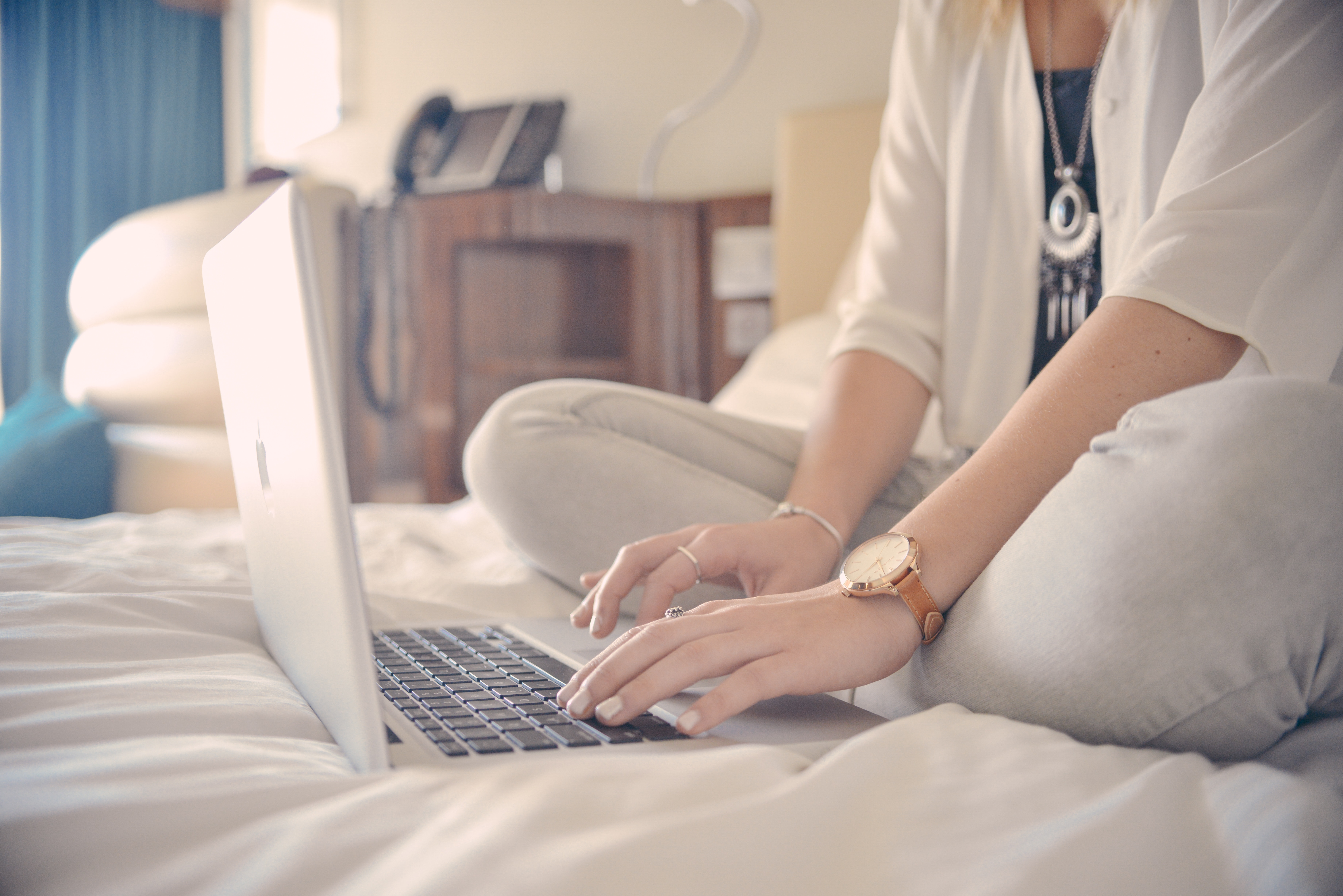
This is common advice, but it works. Using your bed for sleep only will have your brain more accustomed to falling asleep there, increasing the ease of falling asleep. If you’re in a college dorm or are forced to get your work done in your room, try not to do it in your actual bed.
Make Your Bedroom a Sleep Station
Rating: ⋆⋆⋆ | Difficulty: 3/5 | Personal Recommendation: Yes
Positives: Dedicate your entire room to sleep only will make it even easier to sleep
Negatives: Some don’t have this luxury
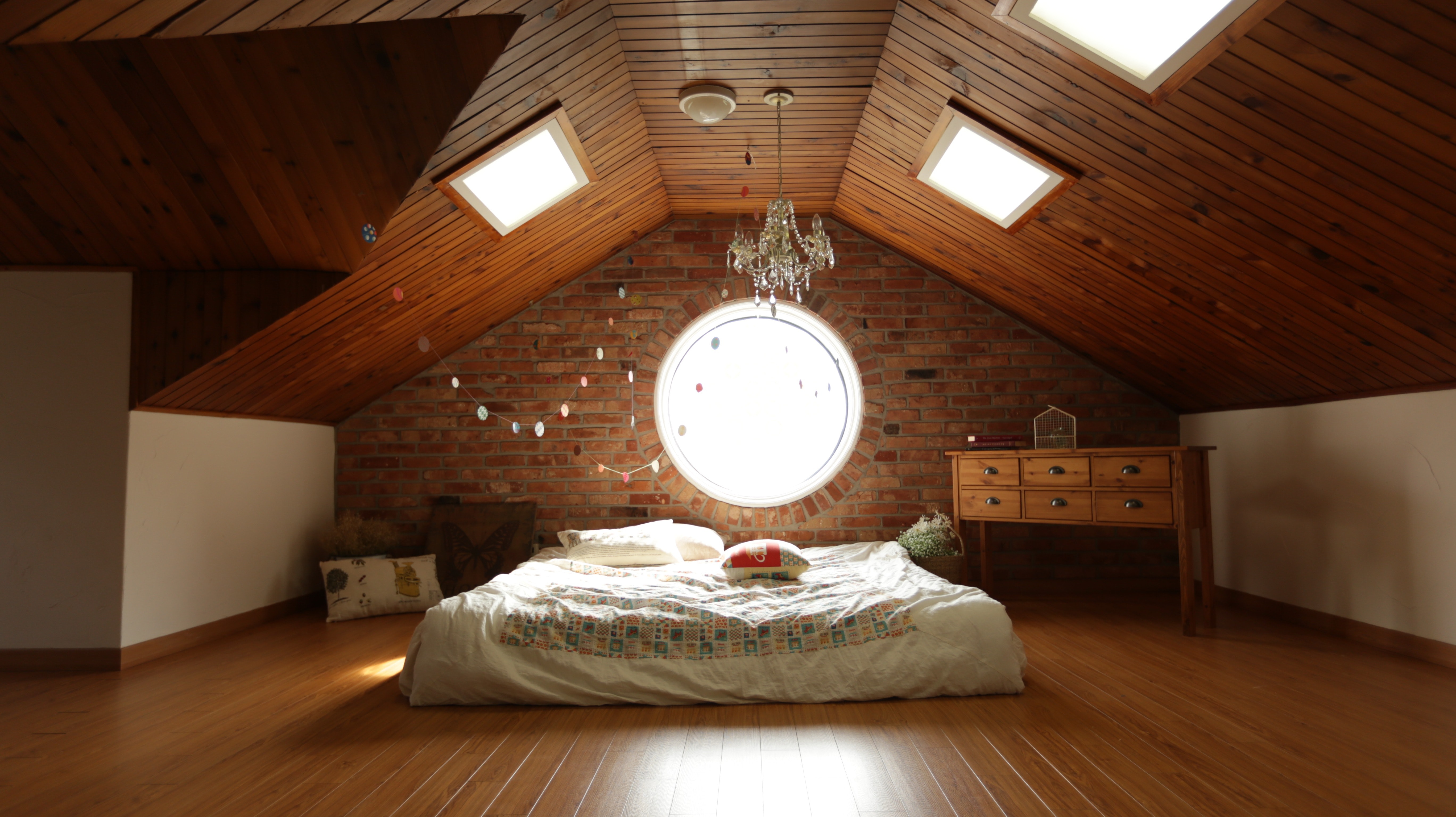
Going one step further than not using your bed for anything but sleep, if you use your entire room only for sleep, it will be like your little cave you go to for rest, letting your brain relax and know that it’s time for sleep and nothing else.
This trick may be impossible for some, especially if you are a college student or have roommates, you simply have to use your room for multiple functions. If that’s the case, just follow the previous tip and use your bed for sleep only.
Remove All Traces of Dust and Allergens from Your Room
Rating: ⋆⋆⋆⋆ | Difficulty: 4/5 | Personal Recommendation: Yes
Positives: No dust and allergens means no stuffy nose at night
Negatives: Slight allergy to pets from pet owners might make this tough
A big part of my recent sleep improvement has come with being absolutely fanatical about maintaining a clean space. We have all hardwood floors (no carpet), lightly vacuum just about every day, and run a Swiffer wet also around every day. The result is a living space with virtually no dust.
After maintaining this practice for a few weeks, I no longer have a stuffy nose going to bed, fall asleep faster, and don’t snore like I used to. While this tip takes a bit of effort to do and maintain, you get a lot of benefits that extend beyond sleep (although it’s worth it for the sleep benefits alone).
If you own pets, it’s likely best to ban them from the bedroom so you don’t get their dander everywhere. If you sleep with dogs and/or cats (I used to) this might be too hard to give up, but the benefits you get from proper sleep may be worth it.
Darken Your Room Completely at Night
Rating: ⋆⋆⋆⋆ | Difficulty: 2/5 | Personal Recommendation: Yes
Positives: A dark room with no light allows for many sleep benefits
Negatives: Light may not naturally fill your room as the sun comes up
A completely dark room is very helpful for melatonin production, as the tiniest bit of light can severely limit or completely stop melatonin production within your body.
While you don’t have to make your room pitch black, at the very least eliminate all light sources (digital clocks, night lights, and LEDs) from your room.
Set Your Room to the Ideal Temperature
Rating: ⋆⋆⋆⋆ | Difficulty: 2/5 | Personal Recommendation: Yes
Positives: Science and studies have shown a temperature of 60-67 degrees Fahrenheit is best for sleep
Negatives: You might sleep next to someone who doesn’t like the cold
As the day winds down, your body naturally tries to decrease its core temperature as a cooler body sleeps easier. The ideal temperature for your room has been shown to be 60-67 degrees Fahrenheit, which is cooler than most people would assume.
The obvious problem here is if you sleep next to someone who doesn’t like the cold, you don’t have a lot of options to reduce the temperature for you alone.
Learn Progressive Muscle Relaxation
Rating: ⋆⋆ | Difficulty: 2/5 | Personal Recommendation: No
Positives: This technique helps some fall asleep
Negatives: Doesn’t work for everyone
Progressive muscle relaxation is a sleep technique that some people swear by. Basically, right before bed, set some time aside and slowly tense up different muscles in your body progressively and then relax them, when you’ve done this with your entire body, you’ll be much more relaxed and it will be easier to fall asleep.
Do it by slowly squeezing then relaxing your muscles progressively in your head, feet, legs, arms, hands, butt, stomach, chest, and shoulders. After that you should feel more relaxed.
Lose the FOMO (Fear of Missing Out) at Night
Rating: ⋆⋆⋆⋆ | Difficulty: 4/5 | Personal Recommendation: Yes
Positives: Not missing sleep at night will result in drastically better overall sleep
Negatives: Night life is very important to some
Many people don’t want to sleep at night because they fear they’re missing out on fun that can only be had at night. Sacrificing late nights to sleep so you can have better days is a trade that is definitely worth it. If you’re serious about improving your life, then you should be serious about sleep.
Drop the notion that night time is when all the “cool” things happen and go to bed.
Look Forward to Tomorrow
Rating: ⋆⋆⋆⋆ | Difficulty: 5/5 | Personal Recommendation: Yes
Positives: You get more sleep when you don’t linger awake at night delaying tomorrow
Negatives: Maintaining a positive mindset can be difficult for some
Personally, this is something I’ve always had trouble with in the past. I always wanted to stay up as late as possible each night because I wasn’t looking forward to tomorrow. Going to a job I didn’t enjoy, having responsibilities I could push off just a bit longer by staying up late.
Tomorrow still comes, and you get nothing but exhaustion and require caffeine all day just to get through the day, creating a vicious cycle.
This tip can be really difficult to apply especially if you’re currently unhappy with the state of your life, but really effective once you get the hang of it. It might mean you need to completely change how you live your life, but once you do it you can start sleeping better, and the positive feedback will create a positive cycle that will drastically improve the quality of your life.
Learn Basic Meditation
Rating: ⋆⋆⋆ | Difficulty: 2/5 | Personal Recommendation: Yes
Positives: The breathing techniques for meditation can also apply to falling asleep
Negatives: Not everyone is a fan of meditation
Meditation, at least at its most beginner levels, is all about focusing on your breathing and quieting your mind’s chatter. These two techniques work very well for sleep, and you can use them in bed.

You don’t need to be hardcore in meditation to get a lot of benefit from it. As little as 10 minutes per day can be very helpful, for all areas of life, not just sleep.
Part 2: Products & Software to Sleep Better
Many products exist to help you solve one nagging issue preventing you from sleeping, or you might want better quality sleep overall. There are a ton of products out there, and this guide goes over some of the most effective for sleeping.
White Noise Maker to Block Out Noise
Rating: ⋆⋆⋆⋆ | Difficulty: 1/5 | Personal Recommendation: Yes
Positives: Blocks distracting noises, provides consistent sound environment
Negatives: It makes noise, so that alone can be distracting.
White noise makers play a consistent sound similar to a fan humming that can drown out random noises around you that your brain can’t help but focus on.
With random noises drowned out by the consistent white noise, you can more easily fall asleep.
Great for anyone who lives in a place that’s noisy, like a city.
Out of all the white noise makers that exist, the Marpac DOHM Natural White Noise Maker is the best. It’s analog, so an actual motor generates the white noise, not a cheap speaker.
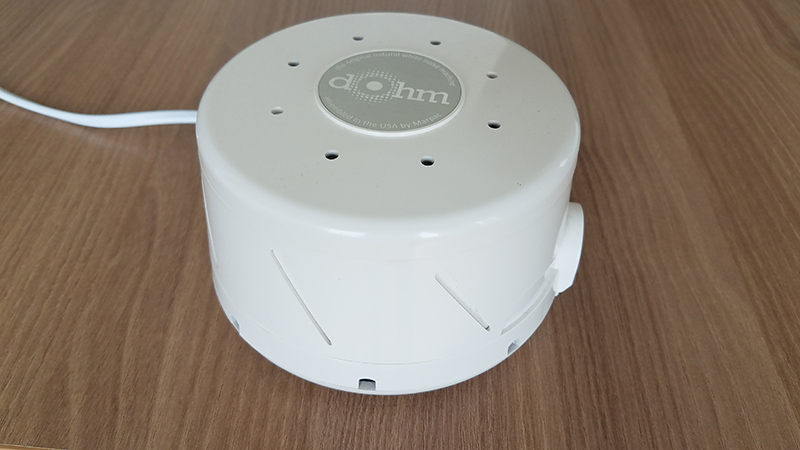
This device saved me many nights, especially when I lived in noisier places.
Ear Plugs to Quiet the World Down
Rating: ⋆⋆⋆ | Difficulty: 2/5 | Personal Recommendation: Yes
Positives: Random sounds disappear, making it easier to sleep
Negatives: Can be uncomfortable, you can still hear a lot of sound even with them on
Ear plugs work similar to white noise makers, but instead of drowning out sounds with its own, ear plugs turn the volume down on your surroundings.
Important point about ear plugs: If you’re new to them, you’re likely not putting them in right. They can go MUCH FURTHER into your ears than you initially think.
You can double their effectiveness if you follow the directions on your ear plugs properly (squish them between your fingers and really SHOVE them in your ear canal and allow them to expand).
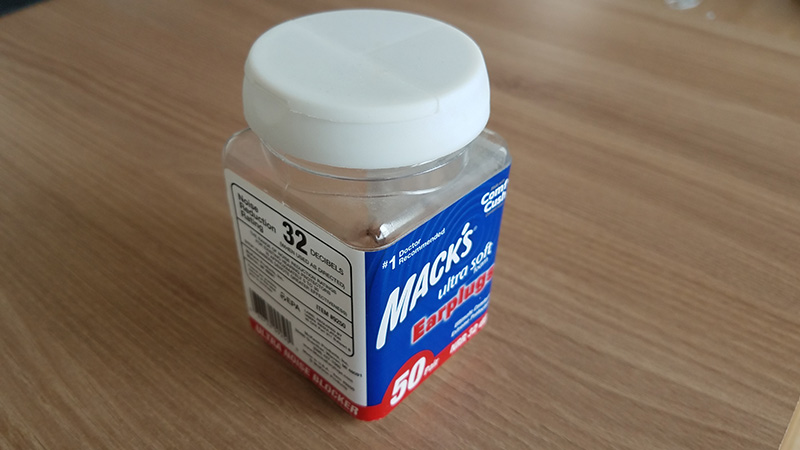
The best I’ve used are Mack’s NRR 32 ear plugs, but after doing some research people claim the 3M Ear Plugs work even better.
Earplugs work great used in combination with the white noise maker mentioned above.
ChiliPad: Cool Down or Warm Your Body
Rating: ⋆ | Difficulty: 1/5 | Personal Recommendation: No
Positives: Can lower or raise your body temperature while you sleep
Negatives: Expensive, inconsistent, marred with bad reviews
Recommended by Tim Ferriss in his book Tools of Titans, this thin blanket is placed under your fitted sheet and can regulate your body temperature, which is great if you’re a “hot sleeper”.
Research shows that a cooler body sleeps better than a warmer body, and the ChiliPad can help you maintain the perfect temperature for sleeping.
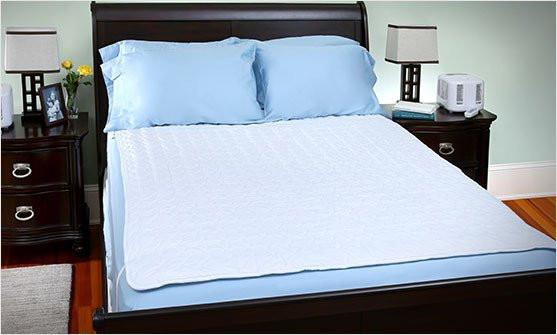
Disclaimer: The issue with the ChiliPad is its very high price, and multiple poor reviews of people claiming it breaks, is loud, and if you’re a decently sized and warm person you can negate the cooling feature after just a few minutes.
With such sketchiness involving it, I don’t know if I can recommend it, but it has worked for many so I’ll leave it on this guide to let you know it exists.
For something that seems to accomplish the same goal but at a lower price point with better overall reviews, you can try a BedJet (explained next).
BedJet: Cool Down or Warm Your Body
Rating: ⋆⋆ | Difficulty: 2/5 | Personal Recommendation: No
Positives: Doesn’t use water, cheaper than ChiliPad
Negatives: Still has reviews that calls its quality into question, scores poorly on Fakespot
Seems to cover the same exact function of the ChiliPad without the introduction of water with electricity. The reviews seem a lot more consistent and positive than ChiliPad (but still suspect), and it’s cheaper. However, due to their questionable Fakespot rating, I can’t personally recommend this product.
BedJet cools (or warms) your body while you sleep through air flow and even comes with an app to adjust temperature dynamically as the night goes on.
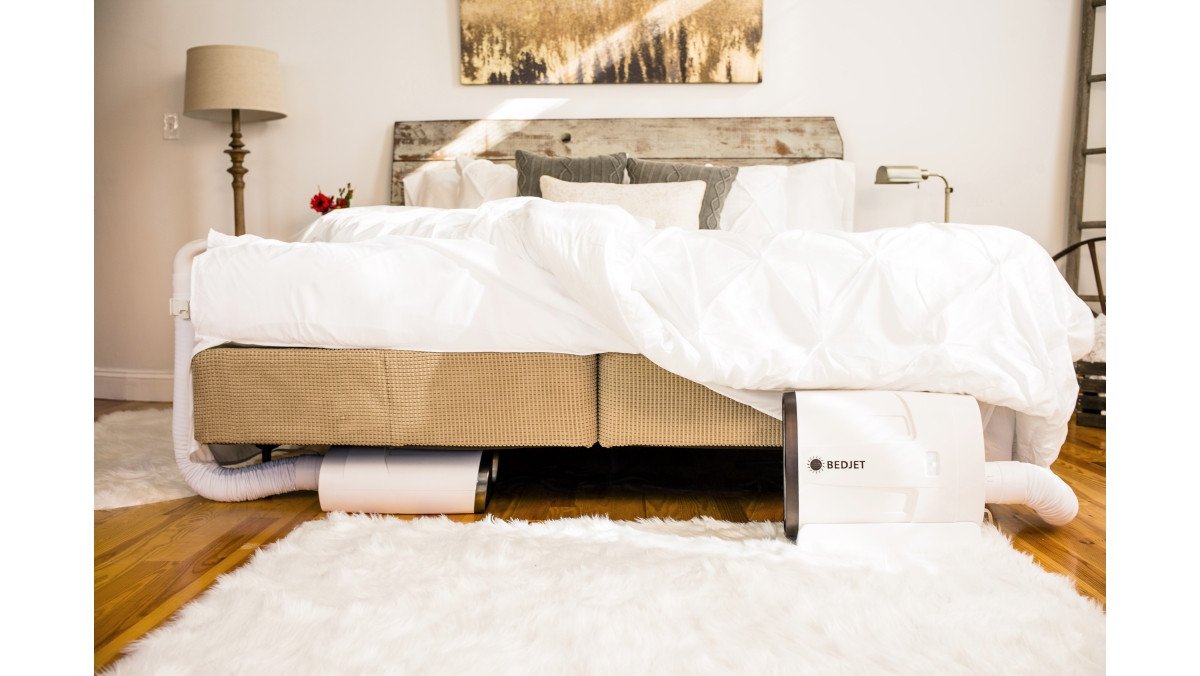
You can even buy an accessory comforter that better circulates the air and pumps it through the sheet, maintaining your body temp throughout the night.
Disclaimer: This product is also expensive and the reviews may not be trustworthy, but it does have a generous return policy you should use if you don’t like the product as some reviewers said it can be loud and ineffective.
A Better Mattress to Sleep Easier
Rating: ⋆⋆⋆⋆⋆ | Difficulty: 1/5 | Personal Recommendation: Yes
Positives: New trendy mattresses work far better than old-school spring-form mattresses
Negatives: While cheaper than elite brand names, they can still be very pricey
It’s still a pretty recent development that the Internet was taken by storm by new companies that make mattresses-to-order, stuff them in a box, and ship them straight to your door, matching premium brands in quality but at a fraction of the price.
I personally went from a typical spring-form mattress to a Leesa mattress and haven’t looked back since. They really are all they’re hyped up to be, and today there are a ton of choices to choose from.
Since I’m not a mattress reviewer, I can only recommend mattresses people I know personally have used or I have used myself.
This short list of mattresses is:
- Leesa – my current mattress
- Casper
- Loom & Leaf
All of these “new” mattress companies have extremely generous trial periods and return policies. Give a few a try and you won’t be disappointed with how much your sleep improves.
A Better Pillow Prevents Pain
Rating: ⋆⋆⋆ | Difficulty: 1/5 | Personal Recommendation: Yes
Positives: A good pillow will allow you to sleep better and wake up without shoulder/neck pain
Negatives: Pillows these days are typically huge, which works against stomach sleepers
Just like a good mattress, a good pillow is vital to a good night’s sleep.
There are many types of pillows that are recommended for different “types” of sleepers (back, side, and stomach sleepers).
However, one pillow that seems to stand above much of the competition in terms of positive reviews from professional review sites and actual users is the Nest Bedding Easy Breather. If it’s too big, you can take out a bit of the internal “stuffing”. I personally like pillows on the smaller side, and those seem to be a rare find these days.
Do your research and see which kind of pillow is best for you.
Buy Better Bed Sheets and Comforter
Rating: ⋆⋆ | Difficulty: 1/5 | Personal Recommendation: Yes
Positives: Good sheets increase comfort and promote better sleep
Negatives: Sheets can overheat your body, causing you to wake up at night
While bed sheets aren’t a “game changer” by any stretch, a bad set of bed sheets can make sleeping more difficult than it needs to be.
For the sheets themselves, I have a couple sets of the cheap Jersey cotton sheets they sell at Target, and those have worked great for me for years (feels like you’re sleeping on a giant t-shirt). You can catch them on sale or clearance often in the $20-$40 range depending on the size of your bed.
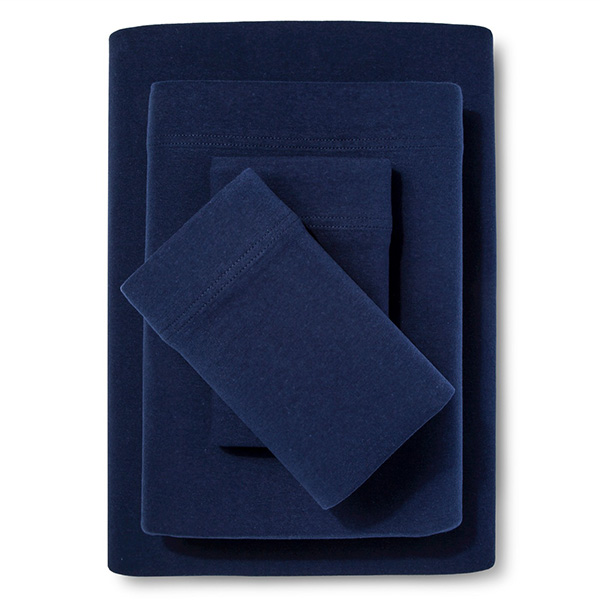
For comforters I can’t make a personal recommendation, but I myself don’t find extra heavy sheets appealing because they can get hot. But everyone is different.
Brooklinen seems to be a good company that has a heavy and lightweight down comforter, as well as a cheaper down-alternative version. Check out their comforters and see if they have one you find appealing.
Weighted Blankets Promote Deeper Sleep
Rating: ⋆⋆⋆ | Difficulty: 1/5 | Personal Recommendation: No
Positives: Can provide extremely deep sleep
Negatives: Gets hot, some people don’t like the feeling of the added weight
Weighted blankets have been used in therapy and are medically proven to assist in treating insomnia, but have been recently found to help casual users to sleep better and deeper.
People have reported weighted blankets feel comforting and like you’re receiving a constant, calming hug that may help you relax and sleep better.
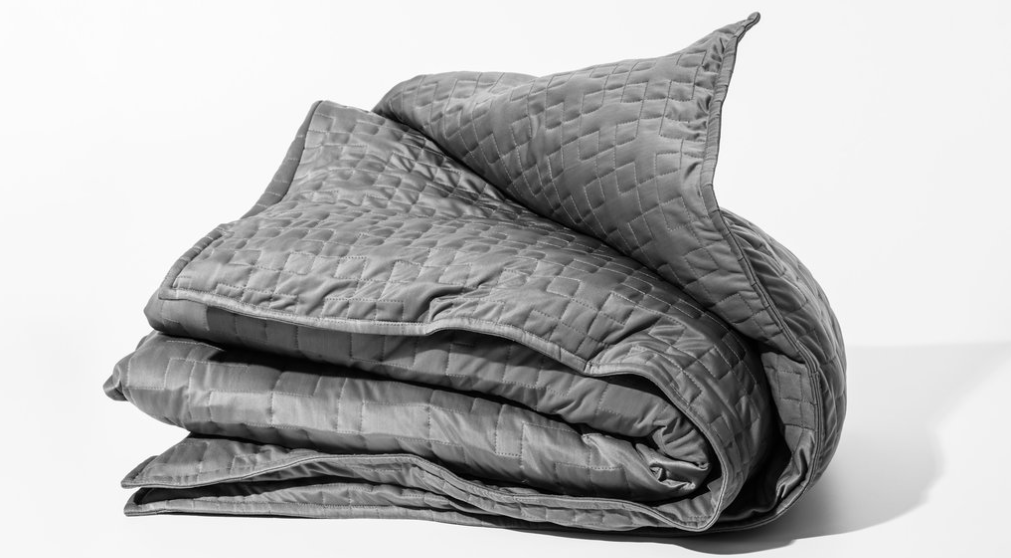
Weighted blankets are pretty trendy right now, the two most mainstream brands are Gravity Blankets and BlanQuil, but there are more affordable options on Amazon like Good Knight, YnM Weighted Banket, and Kpblis Weighted Blanket.
Blackout Curtains Eliminate Light
Rating: ⋆⋆⋆ | Difficulty: 2/5 | Personal Recommendation: Yes
Positives: Can block sunlight and even sound from your sleeping environment
Negatives: Can’t really tell when the sun is coming up since they work so well
Blackout curtains work best for people who don’t sleep at “traditional” times and need to block out the sun to go to bed, or block it out in the morning to stay asleep.
You should sleep in complete darkness if possible, so blackout curtains can help you achieve that.
One of the best blackout curtains I’ve seen is offered on Bed Bath and Beyond.
Download Blue Light Filter Software
Rating: ⋆⋆ | Difficulty: 1/5 | Personal Recommendation: Yes
Positives: Reduces amount of blue wavelength light coming from your monitor. Free.
Negatives: Nothing serious. Takes some resources in your PC to use, you might not like the color.
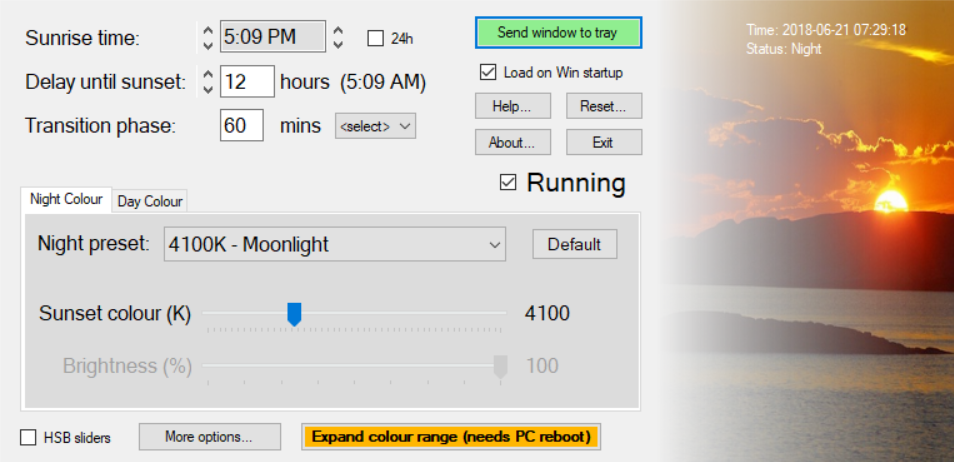
Blue light filter software eliminates a lot of the blue light coming out of your monitor, giving your screen a more amber look that is similar to what the sun looks like going down.
High amounts of blue light have shown to halt melatonin production, which your body naturally makes to help signal to you that it’s time to get ready to go to sleep.
While f.lux is the most popular software right now, I use a program called SunsetScreen, it’s simple and doesn’t slow my computer down as much as f.lux does. Both are free to download and use.
Buy a Sleep Light Bulb
Rating: ⋆⋆⋆ | Difficulty: 1/5 | Personal Recommendation: Yes
Positives: Reduces amount of blue-light you take in evenings/nights
Negatives: Might require you have more light fixtures in your home.
Many lights, especially popular modern LED lights, emit blue wavelength light that halts natural melatonin production in your body.
To combat this, you can use special bulbs that emit less of this light, and will help you fall asleep more easily when it’s time to go to bed.
Two good choices on Amazon are SCS Nite-Nite Light Bulb and these cheaper HERO-LED bulbs (which offer a low 2200k color and come in amber).
Use these bulbs during the evenings and nights and you can use standard lights (and the daylight itself) to illuminate your space during the day.
Blue Wavelength Light Blocking Glasses
Rating: ⋆⋆⋆ | Difficulty: 1/5 | Personal Recommendation: No
Positives: Reduces amount of blue-light you take in evenings & nights
Negatives: You have to wear them, and you might look like “that guy”
Similar to the bulbs that don’t emit melatonin-halting blue light, blue light blocking glasses prevent the blue wavelength light coming from all sources by covering your eyes.
It’s a more universal and portable approach to blocking blue light, so it can be a more practical solution if you are really trying to block out blue light.

While I don’t know of any “mainstream” providers, these Amazon choices are affordable and don’t carry any faked reviews:
Apple Cider Vinegar Before Bed
Rating: ⋆⋆ | Difficulty: 1/5 | Personal Recommendation: Yes
Positives: Aids in reducing potential symptoms of things that prevent sound sleep
Negatives: You might not like the taste
Apple Cider Vinegar is touted as being somewhat of a cure-all for many minor ailments, and is hyped up to high heaven by the Internet. Still, people have reported that a tiny bit of ACV before bed can help you sleep better and calms down a lot of systems in your body that can interfere with your sleep.
This video highlights some of the reasons you should drink ACV right before bed:
Recommended ACV: Bragg’s Apple Cider Vinegar
Yogi Soothing Caramel Bedtime Tea
Rating: ⋆⋆ | Difficulty: 1/5 | Personal Recommendation: No
Positives: Contains high quality natural ingredients to help relax your body, helping you sleep while being non-habit forming
Negatives: Some people feel literally nothing from the main extract in the tea (California poppy). Since it is tea, you might need to pee at night (which wakes you up).
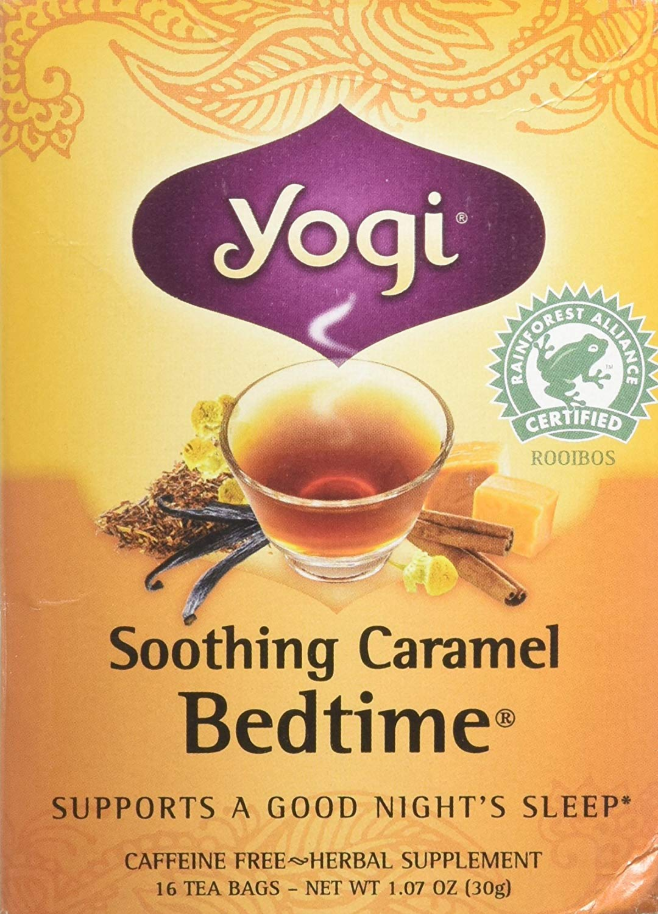
Yogi Soothing Caramel Bedtime Tea. I got this recommendation from Tim Ferriss’s Tools of Titans, it’s a tea that mainly works off of the California Poppy Plant and a few other things like L-Theanine (uses high quality Suntheanine), and other generic herbal teas like chamomile that don’t directly do anything to make you sleep, they’re just nice and relaxing.
The combination of the active ingredients and calming herbal ingredients makes for a pretty decent sleep drink. You’d have to try this for yourself and see if it works for you.
If you want to skip the tea and go straight to the main ingredient, try the next suggestion.
California Poppy Extract for Sleeping
Rating: ⋆⋆ | Difficulty: 1/5 | Personal Recommendation: No
Positives: Direct to the source, no tea or liquids required
Negatives: Doesn’t work for everyone. Some people report feeling absolutely nothing from California poppy extract so YMMV.
The active ingredient for the Yogi Bedtime Tea is California Poppy Extract. To save money and not drink so much liquid before bed, you can buy the extract directly and take a few drops before bedtime.
YMMV with this product, as many people claim it does literally nothing for them while others report great results.
Chamomile Tea Calms You Down
Rating: ⋆⋆ | Difficulty: 1/5 | Personal Recommendation: Yes
Positives: Simple herbal tea that can help you sleep
Negatives: Effects are so mild you might not even notice. It’s liquid so increases need to pee.
Chamomile tea has long been used as a bedtime tea to help you wind down and prepare for sleep. While no one is sure exactly what in chamomile helps with sleep, research shows it does assist with sleep over a placebo, although more research should still be done.

Yogi also has a straight chamomile tea they sell, but if you’re a true fan of chamomile (I love the stuff) you can buy chamomile flowers in bulk and have chamomile tea to last you months at a fraction of the tea bag price.
Magnesium to Relax
Rating: ⋆ | Difficulty: 1/5 | Personal Recommendation: No
Positives: Can help lower anxiety, which is one of the causes of insomnia
Negatives: Might not do anything for you at all

Magnesium has been shown to have calming, anti-anxiety effects on people. If you’re an anxious person that has racing thoughts while attempting to go to sleep, it’s possible that magnesium may help you calm your brain down a bit and allow you to sleep.
Philips goLITE BLU to Boost Your Circadian Rhythm
Rating: ⋆ | Difficulty: 1/5 | Personal Recommendation: No
Positives: Blue light is actually good in the mornings
Negatives: Might not do much for you
If you work in a dark office or work non-traditional hours, this blue wavelength light can help energize you by signaling to your body that it is daytime outside and flush all the “sleepy” chemicals from your body. Letting your body know it’s “day” when you wake up and that it’s night when you’re attempting to sleep will go a long way in helping you fall asleep when you want.
You can get Philips goLITE BLU on Amazon.
Part 3: What You Should AVOID to Sleep Better
Even though it’s part 3, you can likely make the most progress in improving the quality of your sleep with this section. Sleep quality is just as important as length of sleep, because if you get poor quality sleep, it’s almost like you didn’t sleep at all.
Taking this section seriously will be a requirement if you actually want long term sleep improvements.
Quit the Caffeine
Rating: ⋆⋆⋆⋆⋆ | Difficulty: 4/5 | Personal Recommendation: Yes
Positives: Less difficulty falling asleep, better quality sleep, eliminate cycle of dependency
Negatives: Caffeinated beverages are addictive, hard to give up, and taste good
Coffee, tea, energy drinks, and anything with caffeine is a sensitive topic to cover since many people can’t imagine their lives without them. I used to be a devout coffee snob, only buying the freshest beans, dropping them in my burr grinder and brewing some delicious coffee in my Chemex.
However, anyone who drinks coffee quickly realizes that they soon need it to even function, and can’t go a day without it.

After doing some research, you’ll find that the feeling you get from coffee is just a trick. All it does is block our adenosine receptors from sensing how much adenosine we have in our bodies, which provides the illusion of wakefulness and impairs our ability to fall asleep. Once the magic trick wears off, we feel a flush of fatigue and need even more coffee to get back to “normal”. After that, your body adjusts its receptors in anticipation of new hit of caffeine, making you need more to achieve the same feeling you got previously.
On top of that, caffeine has a half-life of 6 hours, so even after 6 hours you still have 50% of the caffeine inside your body. Even when you do fall asleep, you still have caffeine in your body interfering with the quality of your NREM and REM sleep cycles.
Rather than being addicted to the perceived benefits, know that coffee isn’t actually providing you any valuable boost in cognition, it isn’t actually giving you energy, it’s greatly reducing your ability to sleep, and it’s costing you money.
If you want to sleep better and be more focused and productive, then quit caffeine permanently.
Stop Drinking Alcohol
Rating: ⋆⋆⋆⋆⋆ | Difficulty: 4/5 | Personal Recommendation: Yes
Positives: When you are asleep, you will have much higher quality sleep
Negatives: People really enjoy beer
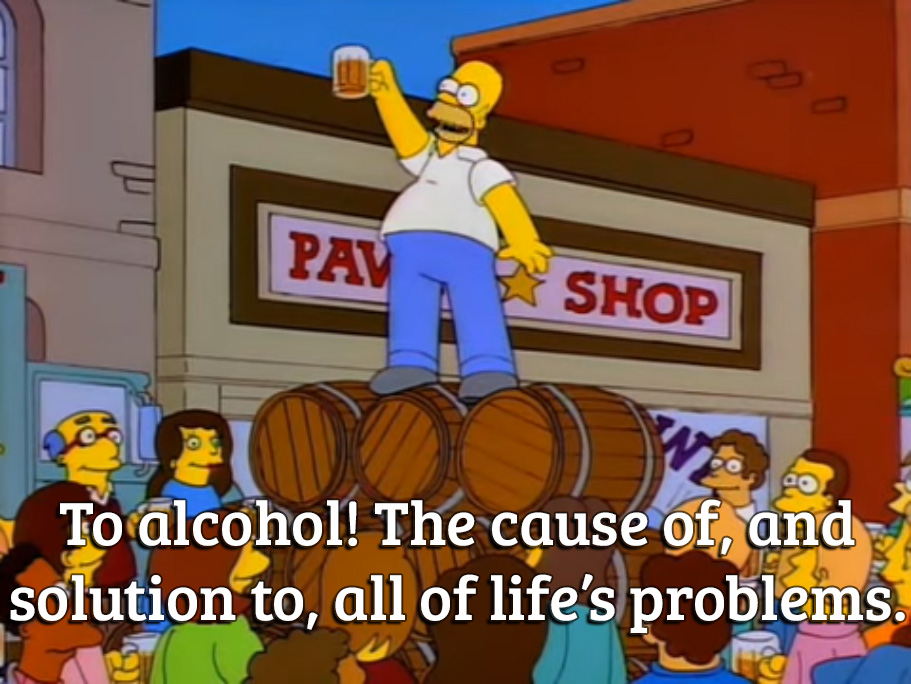
This might be hard for some, but the most difficult things can also give the best results. It’s really understated today how hard alcohol ravages our ability to have full and complete sleep.
Alcohol is a sedative, and sedatives prevent your brain from getting productive sleep, instead they knock you out and put you in a state that isn’t like sleeping (but you aren’t awake, either). You also constantly wake up from your sleep while you have alcohol in your system, you simply don’t remember.
This combined effect alcohol has on your brain leaves you without restful sleep, and can ruin your entire day and ruin your ability to maintain a consistent sleep cycle.
Out of everything in this guide, if you really want to sleep better, giving up alcohol (and caffeine mentioned previous) is one of the best things you can do to achieve that.
Read Why We Sleep by Matthew Walker if you want more detailed information on how alcohol totally ruins your ability to fully sleep.
DON’T Take Sleeping Pills
Rating: ⋆⋆⋆⋆⋆ | Difficulty: 2/5 | Personal Recommendation: Yes
Positives: Sleeping pills, like alcohol, prevent real sleep
Negatives: Just don’t take sleeping pills. They don’t work.
I can’t say enough bad things about sleeping pills:
- They don’t put you to sleep, they just knock you out
- Studies show people don’t even fall asleep faster taking pills
- They’re extremely addictive
- Expensive
- Create a vicious cycle of dependence and reliance on substances
There’s a difference between having quality sleep and not being awake due to a drug-induced mini coma. Low quality sleep is almost as bad as no sleep at all. Sleeping pills have a way of “turning off” your brain rather than allowing you quality REM and NREM sleep, both of which are vital to feeling rested and energetic the following day.
Why We Sleep by Matthew Walker goes into great detail just how bad sleeping pills can be for your overall sleep quality. Give it a read if you want to know more.
DON’T Take Melatonin
Rating: ⋆⋆⋆ | Difficulty: 1/5 | Personal Recommendation: Yes
Positives: Melatonin is only good in rare circumstances, not as a consistent sleep aid.
Negatives: None, you don’t need it.
A lot of sites talk about melatonin like it’s a great natural sleep aid, but this is bad advice.
Biologically, melatonin does nothing to make you actually fall asleep, it’s something your body produces to help signal to your body it’s time to prepare for sleep, which is a big difference.
Also, melatonin you buy over the shelf is often dubious. You can never truly ascertain the quality, the effective amount within your pill (concentrations never match up to what the label says), and if you take it while other sleep factors aren’t properly aligned in your body, you’ll take it and just feel like a zombie that can’t fall asleep.
Melatonin works for some scenarios, like when you travel across time zones and need to readjust your internal circadian clock, melatonin can help you adjust quicker. That’s about it for usefulness as a sleep aid.
In Why We Sleep, Matthew Walker states
Melatonin simply provides the official instruction to commence the event of sleep, but does not participate in the sleep race itself. For these reasons, melatonin is not a powerful sleeping aid in and of itself, at least not for a healthy, non-jet-lagged individual.
Don’t Smoke Marijuana
Rating: ⋆⋆⋆ | Difficulty: 2/5 | Personal Recommendation: Yes
Positives: Marijuana reduces quality of REM sleep, which is vital to quality sleep cycles.
Negatives: People like to get high.
Sadly, marijuana is something you should avoid, at least late at night if you’re aiming to get the highest quality sleep possible. High quality NREM and REM sleep are extremely important to having a good night’s rest. If you impair either of them, you won’t be performing at 100% the following day.
Studies have shown that marijuana use close to bed time will disrupt REM sleep. If you absolutely have to smoke, try to give yourself 2 hours of buffer time before you go to bed, although having none will guarantee your sleep won’t be disrupted.
Don’t Have Anything with Nicotine (like Cigarettes)
Rating: ⋆⋆⋆⋆ | Difficulty: 3/5 | Personal Recommendation: Yes
Positives: Nicotine is a stimulant, which impairs your ability to fall asleep.
Negatives: People like vaping and smoking, making it hard to give up for some.
Nicotine is an addictive stimulant that is in cigarettes and vapes. While nicotine alone is not the worst thing in the world for your body, it’s a stimulant that can mess with your ability to fall asleep when you want to, similar to caffeine. The difference, however, is nicotine prevents you from feeling rested, while caffeine prevents sleep from happening.
If you’re serious about getting good sleep, you’ll drop nicotine (and pretty much any other stimulant) from your life. It’s worth it.
Don’t Have Too Many Liquids before Bed
Rating: ⋆⋆⋆⋆ | Difficulty: 1/5 | Personal Recommendation: Yes
Positives: Liquids can disrupt your sleep and have you go to the bathroom.
Negatives: You might be thirsty
While an obvious tip, many don’t keep it in mind right before bed. Eliminate liquids a few hours before you go to bed, and you’ll reduce the chances you wake up in the middle of the night to use the bathroom.
Don’t Take Naps, Especially after 3PM
Rating: ⋆⋆⋆⋆ | Difficulty: 2/5 | Personal Recommendation: Yes
Positives: Late afternoon naps can absolutely destroy your ability to fall asleep at night
Negatives: Napping is really enticing for many
Naps are a tricky subject. Technically, everyone should take a 20 minute nap early in the day (around noon) to stay fresh and alert throughout the entire day. However, the vast majority of people don’t have the luxury of being able to nap so early.
Napping later in the day, especially after 3PM, will likely be longer than 20 minutes and flush out too much of the chemical adenosine in our bodies. Adenosine is built up while we’re awake, and when the limit gets too high, we seriously need to sleep. Late day napping will cause you to flush out too much, making it too difficult to fall asleep at night.
Avoid Polyphasic Sleep
Rating: ⋆⋆⋆⋆ | Difficulty: 1/5 | Personal Recommendation: Yes
Positives: Polyphasic sleep might sound enticing, but it’s not for everyone, and likely not for you.
Negatives: The idea of being able to sleep fewer hours while still being productive is alluring
Polyphasic sleep sounds like it’s worth trying because we can sleep fewer than 8 hours per night and still remain productive, at least that’s the claims set out from any article you read about the topic.
In practice, most people can’t maintain a consistent polyphasic sleep schedule, you’re not allowed to go long stretches of hours awake, if you’re out and about and it’s time for your sleep but you’re not home, you just ruined your entire schedule.
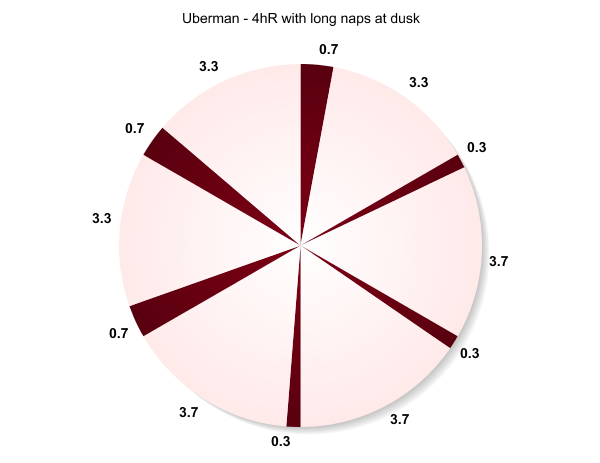
“I’d love to go out with you, however I only have 2 hours left in my current cycle until I need to sleep, so we’ll have to keep it brief.”
It’s just unsustainable. Most people should get by with monophasic sleep or monophasic sleep with a very short nap during the early day. There is also historical evidence that many people were bi-modal sleepers, but there is very little modern research on it.
Besides, if you’re trying to cheat sleep and find a clever way to sleep less, you’ll just be tired all the time.
Don’t Stay in Bed Sleeplessly if You Can’t Fall Asleep
Rating: ⋆⋆⋆⋆ | Difficulty: 1/5 | Personal Recommendation: Yes
Positives: Will help you eventually fall asleep.
Negatives: You’re missing out on more sleep by doing this, but it’s a necessary evil.
If your mind is active, your body isn’t tired, and you don’t feel sleep coming on, then staying up sleepless in bed is not recommended. You can pretty much stay in bed indefinitely this way.
What you should do if this happens to you is get up and do something simple and calming. Watch a fun and easy TV show (like The Office), play a simple game like Tetris, or read a book (fiction is better than non-fiction and educational books).
When you start to get sleepy you can then return to bed.
Avoid Blue Wavelength Light Later in the Day to Sleep Better
Rating: ⋆⋆⋆⋆ | Difficulty: 3/5 | Personal Recommendation: Yes
Positives: Lowering blue light exposure will increase natural melatonin production
Negatives: Not possible for everyone to do
Blue light, especially from LED sources, can completely halt the production of melatonin in your body. If your melatonin production, adenosine levels, and circadian rhythm aren’t all working together properly, you will have difficulty falling asleep at night.
Avoid blue light wherever possible in the evening and night time, and as the product section of guide details you can buy blue light blocking glasses, or warm light LED bulbs that don’t emit as much blue wavelength light.
In Part 2 of the guide I go over some ways to avoid blue light.
Don’t Exercise Right Before Bed
Rating: ⋆⋆⋆⋆ | Difficulty: 1/5 | Personal Recommendation: Yes
Positives: Not exercising will ensure a proper body temperature
Negatives: Some people may only be able to exercise at night
One of the key things that happens in your body as it prepares for sleep is it starts to drop your core body temperature. A lower temp lets you fall asleep easier. If you exercise, you will raise that core temperature and make it more difficult to fall asleep. A pretty simple idea, but definitely something to keep in mind.
Don’t Eat Too Much Right Before Bed
Rating: ⋆⋆⋆ | Difficulty: 2/5 | Personal Recommendation: Yes
Positives: Fall asleep easier when you give your body less to do
Negatives: Some schedules don’t allow for this
Eating too much right before bed has been shown to potentially increase the time it takes to fall asleep. On top of that, you may get indigestion and that will certainly hurt your chances of sleeping.
Try to eat your last meal at least 4 hours before you go to sleep. A small snack later is of course fine.
Don’t Have a TV in Your Room
Rating: ⋆⋆⋆⋆ | Difficulty: 1/5 | Personal Recommendation: Yes
Positives: No TV in your room prevents the host of issues they carry
Negatives: Some people use a TV to help them sleep (which is bad)
A TV in your bedroom is one of the worst things you can do for yourself. Having a TV in your room will steal time away from you that can be put toward sleep at night, and if you fall asleep with the TV on, it is constantly emitting light and making noise, preventing you from getting quality sleep.
If you’re the type of person who is accustomed to falling asleep with a TV on, I implore you to drop the habit as it’s preventing you from getting complete and quality sleep. Better yet, take the TV out of the room and put it somewhere else.
Part 4: Know More About Sleep
Knowledge is power, and knowing more about sleep will influence decisions you make every day when you know they will affect the delicate sleep routine you are trying to maintain.
Here we’ll go over some basics on sleep that will help you understand how sleep works and you can use this information and apply it to how you live your life and manage your routine.
Learn About Adenosine
Adenosine is a simple concept. While you’re awake, your body naturally produces this chemical, and when it produces enough it creates a heavy “sleep pressure” that tells you “It’s time to sleep”. As you sleep, the chemical is flushed out until you wake up again, starting the cycle anew.
The only way to get rid of adenosine is to sleep, and you build it constantly while you’re awake. Caffeine is a chemical that blocks the receptors in your brain from accurately reading how much adenosine you have, so it gives the illusion of wakefulness. However, it’s just a trick as it does not actually remove the adenosine from your body. When those receptors come back online you’ll feel way more tired than you did initially.
Adenosine works independently from your circadian rhythm, but when they’re properly aligned, you can use them both to fall asleep quite easily.
Learn About Circadian Rhythm
Circadian rhythm is something pretty much everyone knows about, however we don’t know everything about how it functionally works and tend to ignore it when living our daily lives.
Your circadian rhythm is an internal clock within you that constantly shifts our bodies from “sleep mode” to “awake mode” and then back to “sleep mode”. While this internal clock works independent of all external factors, like the sun and the moon, it is influenced by them and almost everything you do throughout the day.
Doing things at the same time every day routinely will help you build a strong internal clock, so when it’s “sleep time” for your body, it will be paired with high adenosine levels and you will be able to fall asleep easily.
Keep in mind literally anything you do outside of your set circadian rhythm will throw off your internal sleep clock. The more chaotic and unpredictable your days, the worse your overall sleep quality will be.
Learn the “Am I Sleeping Enough” Test
This tip comes from Why We Sleep by Matthew Walker.
Four hours after you wake up, if you could easily fall asleep again, you didn’t get enough sleep last night and should increase the amount of sleep you’re getting.
Also if you NEED some coffee before you can “function” it means you’re not sleeping enough (or you’re possibly addicted to caffeine).
Know That You Can’t Cheat Sleep
While it’s true you accumulate a “sleep debt” if you sacrifice regular sleep time staying up late (or getting up earlier than usual) and can “make it up” by sleeping more later, the other side of that coin is that the sleep you eventually make up will never be the same quality of sleep you previously sacrificed.
Sleeping is all about quality cycles. When you disturb your cycles, getting back into the flow of good sleep will only come after a few days of poor sleep as your body adjusts to get back into routine. The reason this happens is because your adenosine levels are no longer high when your circadian rhythm is in “sleep mode”, when they’re de-synced you can’t get quality sleep.
Getting back into your routine cycle will take a few days of sub-optimal sleep.
Basically, you can’t cheat sleep, so don’t try.
Sleep You Lose is Lost Forever
Any time you lose sleep, especially near the end of your sleep cycle, it is lost and cannot be regained.
A single night’s sleep is broken down into multiple cycles, going through cycles of NREM sleep and REM sleep. Possibly the most important cycle, the very last REM cycle, is the most active and important to our brains and is responsible for much of what we consider the benefits of getting a good night’s rest (feeling rested, alert, focused, refreshed, etc.).
When we lose even just those last 1-2 hours of a full night’s sleep, it completely eliminates that most important cycle from happening, preventing the most optimal sleep possible. When you lose that last 1 or 2 hours, you can’t make it up with a nap, you have to go through the entire night’s sleep again and hope you can make it the full night without disturbances.
Read the Book Why We Sleep
Why We Sleep by Matthew Walker is a great book on the science of sleep. It’s full of history on the progress science has made understanding sleep, and has tips sprinkled throughout the text on how to get a better night’s sleep (much of which is highlighted in this guide).

Above all else this book really presents a case on just how important sleep is to the quality of your life. You’ll definitely think twice before you want to stay up all night watching 2 seasons of a new show, contemplating the consequences of that all-night gaming session, or even reconsidering the value of pulling an all-nighter.
While the book doesn’t have all the answers and doesn’t really provide you with any “secrets” to sleeping better, it is an easy read (even though it’s a bit longer than it needs to be) and you will definitely learn more about sleep in general.
Look into CBT-1 from a Sleep Doctor
If you have diagnosed insomnia, there’s not a lot of answers out there for you to get quality sleep. One of the best ways to combat insomnia if you’ve tried every practical trick out there is to visit a sleep doctor.
Sleep doctors aren’t typical doctors that will just write you a prescription for sleeping pills (which do more harm than good) and send you on your way, they are doctors that design you a program you can follow to help build a routine that will be the foundation for better sleep.
Ask them about CBT-1 treatment, which stands for cognitive behavioral therapy for insomnia treatment. It’s a program, closely administered and tracked by your doctor, which runs you through a strict set of rules and a schedule to really build quality sleeping habits instead of relying on pills.
Know About NREM and REM Sleep
REM: Rapid Eye Movement
NREM: Non-Rapid Eye Movement
During sleep, NREM and REM cycle back and forth to make up our sleep experience each night. However, each cycle of NREM into REM sleep are not the same, and skipping out on any cycle will greatly reduce the quality of sleep you get that particular night.
If you want to sleep well, understand how vital these cycles are and know that each cycle is not created equal.
There is Still a Lot Unknown About Sleep
While in this guide I don’t recommend polyphasic sleep, there is a lot of historical information on bi-modal sleeping, which many believe to be the “true” way human beings have slept throughout history.
Bi-modal sleeping is going to bed around sunset, and when it is dark you wake in the middle of the night, be active for a few hours, then when you get tired again go back and get your final segment of sleep done.
Logically, this makes sense, as night time is around 12 hours, falling asleep when it becomes dark, waking in the middle of the night, sleeping again, and rising with the sun would fit just as well as sleeping 8 hours a few hours after the sun sets.
Russell Foster, a professor of circadian neuroscience, says that people who wake in the middle of the night should not be alarmed, and that they may simply be bi-modal sleepers, and should adjust their sleeping schedule to account for this.
So, there’s still a lot to learn about sleep, but we know for certain it’s extremely important that you get as much of it as possible.


